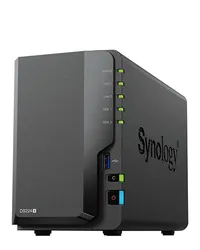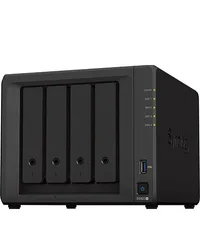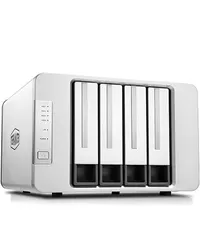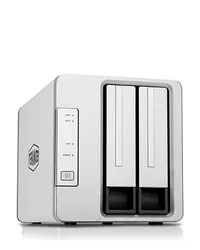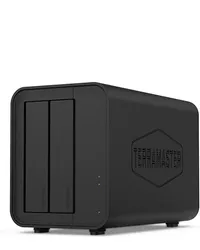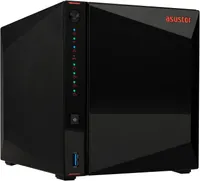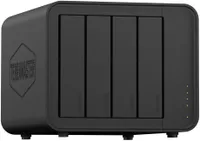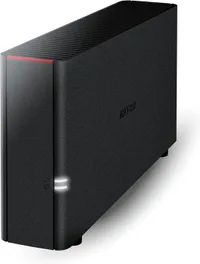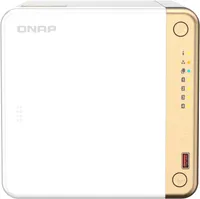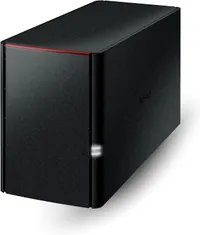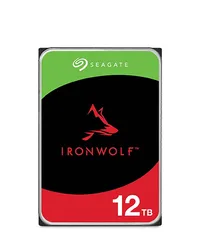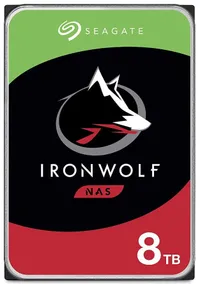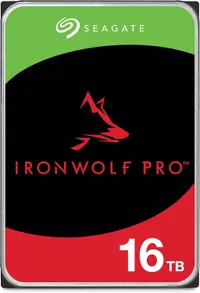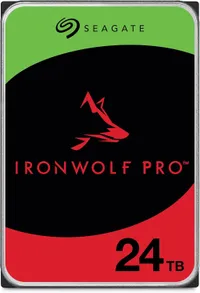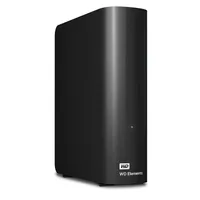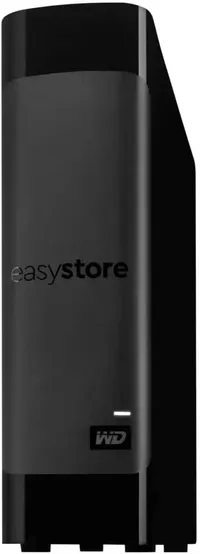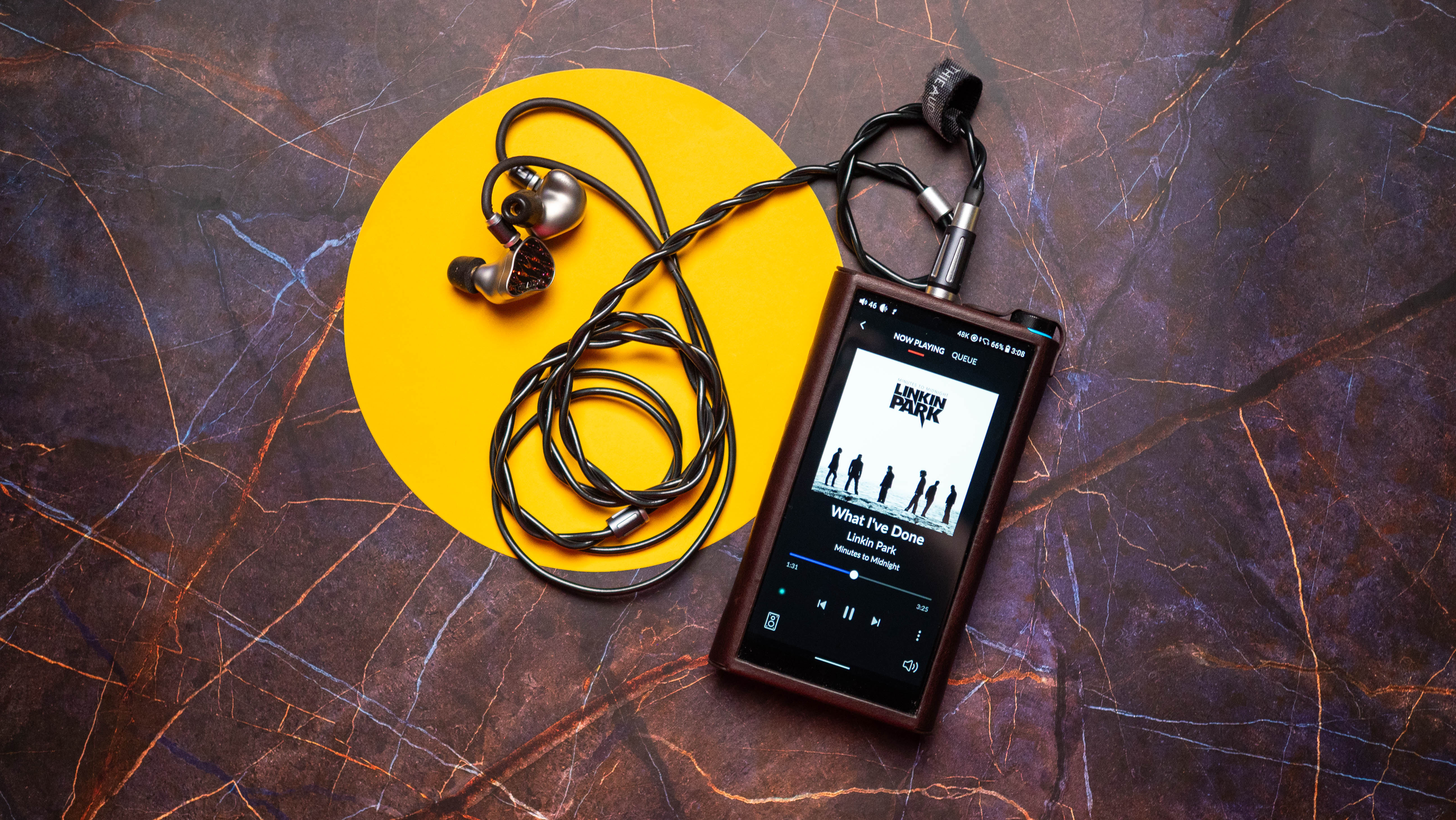I used NAS servers for over a decade — these are my Prime Day picks
This is the best time to get a new NAS server or storage drives.

Amazon's 48-hour Big Deal Days sale is now live, and there are enticing deals to be had if you're looking to pick up NAS storage drives or new servers.
The best NAS servers allow you to seamlessly stream media, back up photos and videos, and so much more. Having a centralized storage hub makes things highly convenient, and honestly, my DiskStation DS1823xs+ is the storehouse for all the data that I value — photos, videos, documents, and my extensive media collection.
All the best NAS deals are now live, with the DiskStation DS224+ and DiskStation DS923+ down to their lowest prices yet. What's great about this time is that there are plenty of standout NAS drive deals as well, including a huge discount on Seagate's massive 24TB IronWolf Pro, which is down to $399. There are plenty of other deals available, so if you need a new server or are interested in picking up NAS drives, this is what you need to know.
Quick links
- Amazon Prime Day — see top deals that are currently active
- Amazon Prime 30-day FREE trial: Most deals are Prime-exclusive
- Synology DiskStation DS224+:
$299$239 at B&H Photo - Synology DiskStation DS923+:
$599$479 at B&H Photo - TerraMaster F4-423:
$459$367 at Amazon - TerraMaster F2-424:
$379$303 at Amazon - Asustor AS5304T 4-Bay NAS: $459 $365 at Amazon
- TerraMaster F4-424 Max 4-Bay NAS:
$899$799 with coupon at Amazon - BUFFALO LinkStation 210 6TB 1-Bay NAS:
$232$209 at Amazon - QNAP TS-462-4G-US 4-Bay NAS:
$489$417 at Amazon - Buffalo LinkStation 220:
$254$229 at Amazon - Seagate IronWolf 8TB NAS Drive:
$159$149 at Amazon - Seagate IronWolf 12TB:
$239$199 at Amazon - Seagate IronWolf Pro 16TB NAS Drive:
$314$249 at Amazon - Seagate IronWolf Pro 24TB NAS Drive:
$649$399 at Amazon - WD Elements 16TB External Drive:
$309$239 at Amazon - WD Elements 20TB External Drive:
$349$265 at Amazon - WD Easystore 22TB External Drive:
$509$369 at Best Buy - More NAS deals: Amazon | Newegg | Best Buy | Walmart
Best NAS deals
Read moreRead less▼
Synology DiskStation DS224+: $299 $239 at B&H Photo
The DS224+ is still my go-to choice if you're just starting out and need a reliable server. This 2-bay NAS has terrific hardware, but it's the software that gives it a distinct edge. If the B&H link below is sold out, you can get the same deal at Newegg.
Read moreRead less▼
Synology DiskStation DS923+: $599 $479 at B&H Photo
The DS923+ is a great choice if you need a 4-bay NAS to use as a Plex server. It may not have the best hardware, but the software is the best in the industry, and as a media server, it is truly amazing. It is available at the same price at Newegg as well.
Read moreRead less▼
TerraMaster F4-423 4-Bay NAS: $459 $367 with coupon at Amazon
The F4-423 is a good 4-bay NAS if you want to use Plex. It has dual 2.5 Gigabit Ethernet connectivity, hardware transcoding, and the ability to house up to four 20TB drives.
Read moreRead less▼
TerraMaster F2-423: $299 $239 at Amazon
The F2-423 is nearly identical to the F4-423, with the biggest difference being two drive bays instead of four. If you don't see yourself using the additional drive bays, the F2-423 is a phenomenal value at just $239. The rest of the hardware is identical, and you get the same dual 2.5 Gigabit Ethernet connectivity, 4GB of RAM, and same software.
Read moreRead less▼
TerraMaster F2-424: $379 $303 at Amazon
The F2-424 is the latest addition in TerraMaster's 2-bay NAS portfolio, and it has powerful hardware, dual 2.5 Gigabit Ethernet connectivity, 8GB of RAM out of the box, and dual M.2 slots.
Read moreRead less▼
Asustor AS5304T 4-Bay NAS: $459 $365 at Amazon
If you need one of the best hardware packages in a 4-bay NAS, the 5304T is a stellar choice. It has Plex hardware transcoding, 2.5 Gigabit connectivity, and the ability to slot in M.2 drives as needed.
Read moreRead less▼
Terramaster F4-424 Max 4-Bay NAS: $899.99 $799.99 with coupon at Amazon
The F4-424 Max is the most powerful NAS on this list. It comes with dual 10 Gigabit Ethernet connectivity as standard, and is powered by Intel's Core i5 1235U, has 8GB of RAM, and dual M.2 slots. If you need an enthusiast server, this is the one to get.
Read moreRead less▼
BUFFALO LinkStation 210 6TB 1-Bay NAS: $232.99 $209.99 at Amazon
A solid intro choice if you don't need multiple bays, the LinkStation 210 gives you 6TB of storage with remote access and loads of security features. It's also 10% off, and Big Deal Days hasn't even started.
Read moreRead less▼
QNAP TS-462-4G-US 4-Bay NAS: $489 $417.50 at Amazon
Currently 15% off, QNAP's TS-462-4G-US combines a powerful Celeron N4505 with 2.5GbE connectivity and four drive bays. You also get an HDMI port, the ability to upgrade to 10GbE, and useful software features.
Read moreRead less▼
Buffalo LinkStation 220: $254 $229.99 at Amazon
It's not a massive discount, but you can still get decent savings from the price of the Buffalo LinkStation 220 if you order one from Amazon today. This storage device boasts a 2TB of total storage with dual drive bays and a minimalist design.
Best NAS HDD deals
Read moreRead less▼
Seagate IronWolf 12TB NAS HDD: $239 $199 at Amazon
The 12TB IronWolf has been my go-to choice, and it combines good storage density with excellent affordability, making it a great choice if you want to upgrade storage.
Read moreRead less▼
Seagate IronWolf 8TB NAS HDD: $159 $149 at Amazon
The 8TB model of the IronWolf is a good choice if you want to buy additional drives but don't need that much storage.
Read moreRead less▼
Seagate IronWolf Pro 16TB NAS HDD: $314 $249 at Amazon
This 16TB drive is a great choice if you need plenty of storage towards your media library. The IronWolf Pro models have better warranty, and a higher endurance.
Read moreRead less▼
Seagate IronWolf Pro 24TB NAS HDD: $649 $399 at Amazon
The latest 24TB IronWolf Pro is getting a sizeable discount this time, and that is great news if you're an enthusiast and need higher-storage drives.
Read moreRead less▼
WD Elements 16TB External Drive: $309 $239 at Amazon
This 16TB drive is housed in an enclosure, but it uses the same great tech that you'll find within WD's white-label NAS drives, making it a great value.
Read moreRead less▼
WD Elements 20TB External Enclosure: $494 $265 at Amazon
This is the single best storage deal you'll find; the 20TB drive housed within can be easily extracted, and you can use that in your home NAS server. It sold out in a matter of hours last year, and I predict the same this time, so act now.
Read moreRead less▼
WD Easystore 22TB External Drive: $509 $369 at Best Buy
You can use this 22TB easystore as a hard drive in its own right, but you can also easily extract the drive located within the enclosure and use it inside your existing NAS. Whatever you end up doing, it is one of the best values around if you need a lot of storage.
FAQ
Which NAS should I buy?
The first question you need to ask yourself is how much storage you're going to need. That sets the basis for whether you should get a two-bay, four-bay, or a larger NAS server.
Synology is the largest manufacturer of NAS servers, and it sells dozens of products across various categories. Synology is known for its high-quality offerings, and its products are built to last. But the defining feature of Synology's NAS models is the software, with the web-based DiskStation Manager setting the standard for this category.
If this is the first NAS you're buying and you don't want to invest a lot of money into a server, the DS223j is a great starter choice. The DiskStation DS224+ is the upgrade pick if you want a powerful 2-bay home NAS, and if you're setting up a home Plex server, you should just get the DiskStation DS923+ instead.
If you need multi-Gigabit connectivity, look to the TerraMaster F4-423; it has great hardware, good software, and plenty of configurability.
How do I choose a hard drive for my NAS?
Choosing the right hard drive for your NAS is just as vital as selecting the right enclosure. As NAS enclosures are designed to run 24/7, there are NAS-focused hard drives available in the market. These models feature vibration resistance and are designed to handle the stresses of a 24/7 environment, and differ from your regular hard drives.
Another factor to consider when choosing a NAS hard drive is the speed. HDDs are usually available in either 5400rpm or 7200rpm, and the latter delivers better performance because the spindle moves at 7,200 rounds per minute. I've used 5400rpm drives in NAS enclosures tailored for media streaming for years without any issues, but if you're building a more enthusiast-focused NAS and are looking for better performance, pick a model with a 7200rpm.
There are several NAS-focused hard drive product lines, with WD Red Plus and Seagate IronWolf dominating the sales charts. With drives starting out at 1TB and going all the way to 20TB, there's no shortage of options available across either product line. I'd recommend the 8TB IronWolf if you're just starting out.
When is October Prime Day?
Amazon's second Prime Day sale event of the year, Prime Big Deal Days begins on October 8th and runs through the 9th.
Do I have to be a Prime member to buy products during Prime Day?
Yes, the vast majority of October Prime Day deals will only be available to Prime subscribers. If you're interested in buying products during the sale and you aren't a member just yet, we recommend taking advantage of Amazon's 30-day free trial so you can get the benefits of Prime Day without paying a cent. Alternatively, you could just wait and see if Amazon's biggest rivals will launch rival sales that don't require a membership.
Get the latest news from Android Central, your trusted companion in the world of Android

Harish Jonnalagadda is Android Central's Senior Editor overseeing mobile coverage. In his current role, he leads the site's coverage of Chinese phone brands, networking products, and AV gear. He has been testing phones for over a decade, and has extensive experience in mobile hardware and the global semiconductor industry. Contact him on Twitter at @chunkynerd.
- Patrick FarmereCommerce Editor
You must confirm your public display name before commenting
Please logout and then login again, you will then be prompted to enter your display name.
